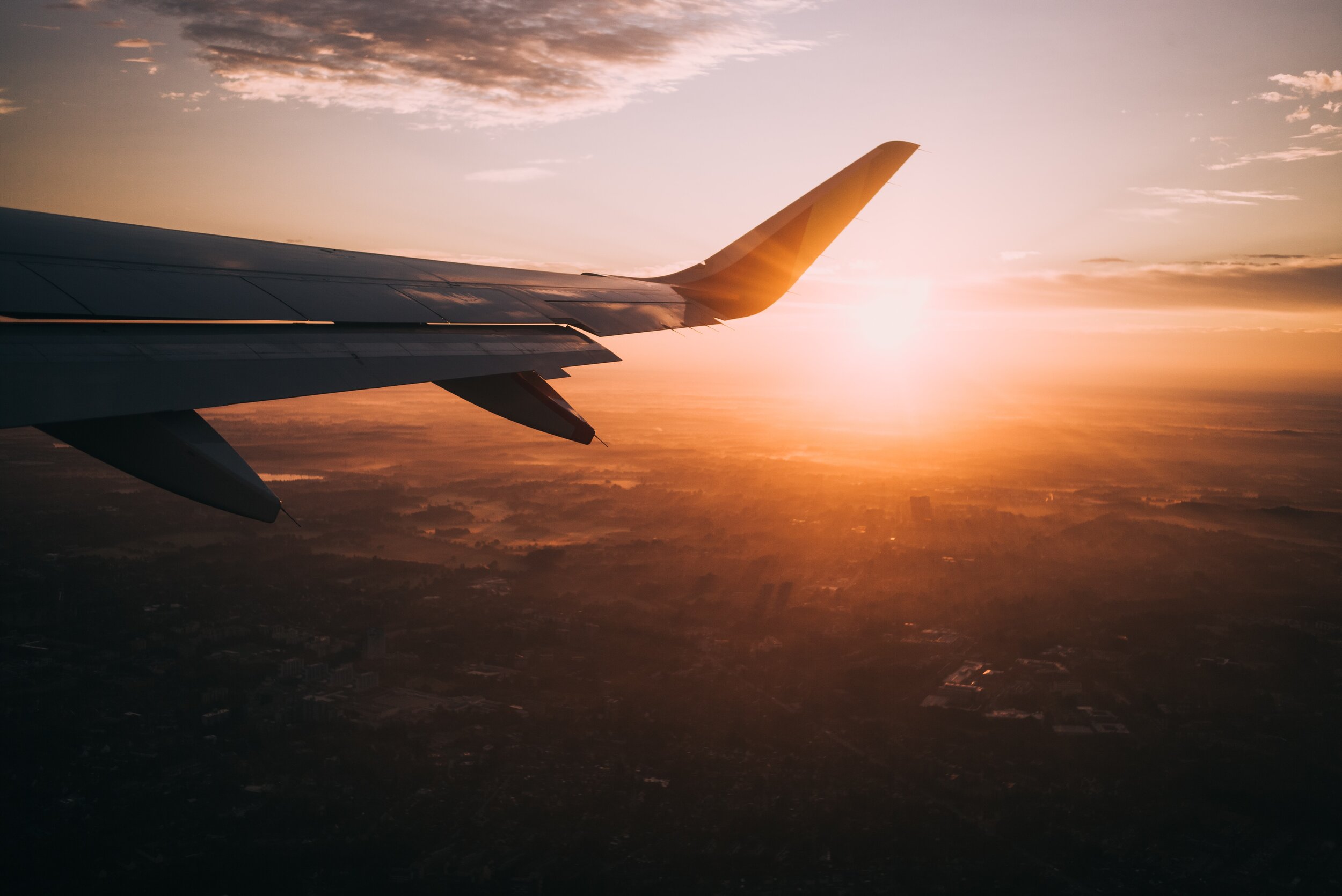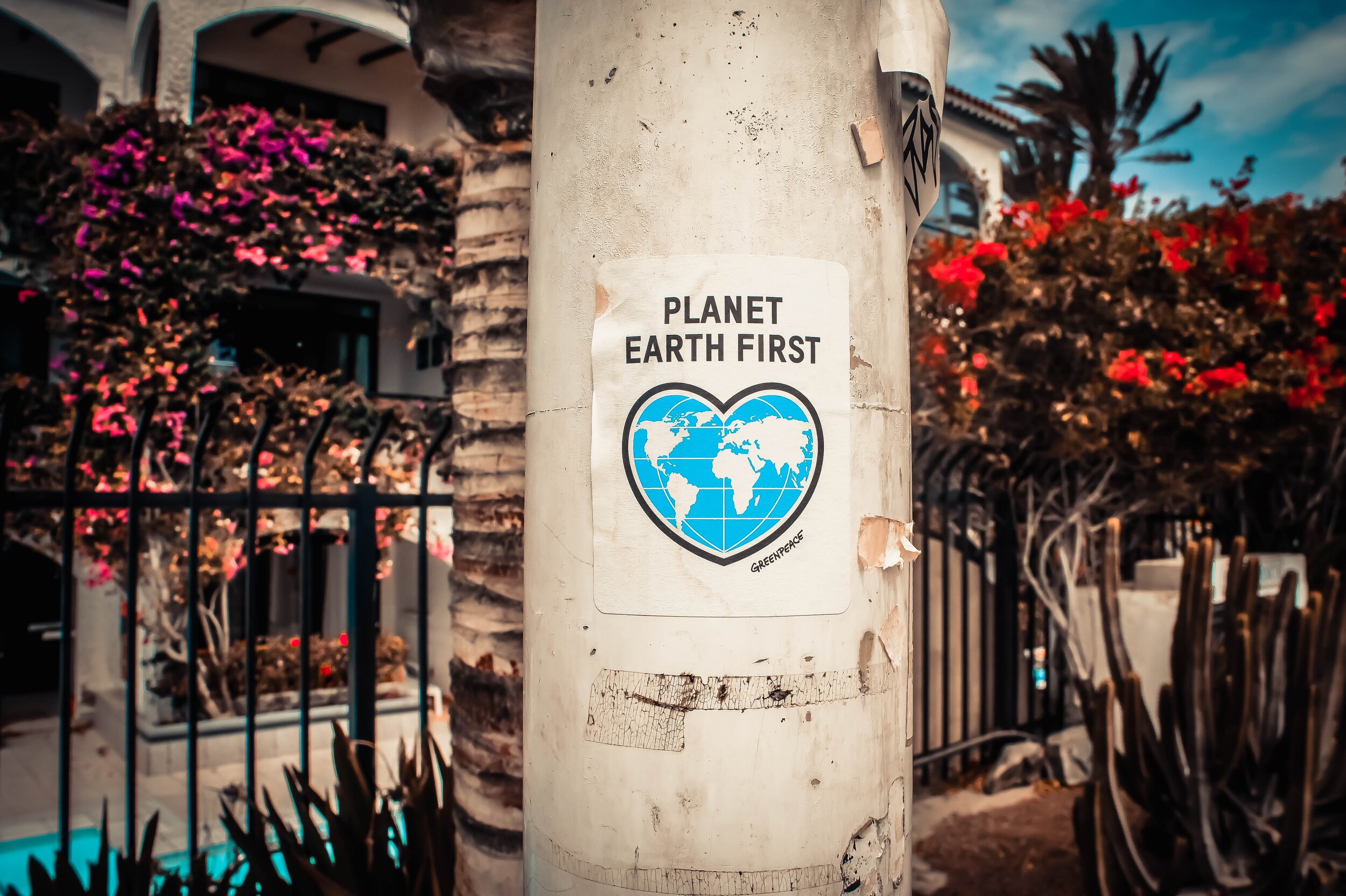Understanding pollution: the future of travel
An average person's carbon footprint is currently 7.1t per year. The UK is aiming to reduce this by approximately 90% by 2050. We all know that we should be travelling less and after a couple months of a worldwide lockdown, we have proof that less travel plays a major factor in combating air pollution. It is important to keep this momentum going and change our ways after the lockdown as well.
If we want to cut down our greenhouse gas emissions to zero and live a carbon neutral life, we would need to reduce our personal carbon footprint to 1.2t per year. This is comparable to one return flight from London to New York.
Air Pollution
Most air pollution breathed in on a daily basis comes from road vehicles and is linked to health problems including stroke, heart disease, lung cancer and disease, and a range of respiratory diseases and infections. The World Health Organisation (WHO) claims that seven million people die every year from air pollution.
Now that we've all been told to stay at home, air pollution has gone down by 30-50% in big cities all over the world. In particular, the number of nitrogen dioxide pollutants (NO2) from vehicle exhausts has dropped drastically. The Centre for Research on Energy and Clean Air has reported that there have been 11,000 fewer deaths in Europe related to air pollution in the first two months since the lockdown started. This doesn’t only represent vehicle exhaust pollution, as our oil consumption and power generation from coal have dropped with respectively 33 and 37% and added to a cleaner air for us all.
Road transport makes up 12% of all global CO2 emissions, which includes all cars, motorbikes, buses, coaches and trucks. We clearly need to reduce our road transport emissions - not only by driving less ourselves, but by buying locally as well. Trucks account for 37% of road transport and they cover thousands of kilometres bringing your meal deals over from France, your clothing from Turkey and your skincare products from Poland.
The aviation industry contributes to 2% of all global carbon emissions. Depending on plane size, they burn between 1.5 to 4 litres of fuel per second. Transporting people is their main business, which means the number of litres of fuel burnt per passenger kilometre is sky high.
Fuel quality is very important in reducing emissions and the EU has set a strict legislation requiring serious cuts in greenhouse gas intensity by 2030. Completely cutting out the use of fuel would be a preferred option, with many of our trains, tubes and buses now using electricity to power their engines.
The UK government offers huge grants of up to £3,000 to help people buy electric cars and even the first electric planes are now being developed. But until these are up in the air, let’s give you an overview of the pros and cons of other modes of transport.
Choosing your mode of transport
Train
Travel by train is one of the best options to reduce your carbon footprint. There are many different types of trains but even trains running on diesel beat travelling by plane or car (with the exception of electric cars). Trains that run on electricity are the most economically friendly. EcoPassenger has researched which train lines are best to travel with according to the way their electricity is generated. The Eurostar train is the best – especially if you’re planning to travel within Europe. Eurostar trains leave from King’s Cross Station in London and in our experience taking a train is actually a lot less hassle than getting to the airport and going through customs. The seats are also very comfortable and you won’t have to worry about a full bladder during take-off and landing. You also won’t need to worry about paying more for an extra bag or suitcase, and the food is so much better. Plus, you can bring your own bottle of water and don’t have to empty it before going through customs!
Yes, the tickets do sometimes come with a larger price tag, but what is comfort and the environment worth to you?
Bus or coach
For shorter distances, consider taking a coach. It's a great option – but bear in mind it's still not better than an electric train or electric car. A coach also takes a lot longer to arrive at your destination and could therefore be a serious inconvenience. You wouldn’t want to be stuck on a bus for a whole day if you’re planning a weekend get-away. However, if you do have time and want to save some money, the coach is the perfect choice for you. There are many bus lines within Europe and a trip from London to Brussels or Amsterdam to Paris will only set you back eight hours and about £15 one way.
Car
Your carbon footprint when you’re travelling by car depends on the type of car - big, small, diesel, hybrid, electric - and the amount of people you’re travelling with. When you’re travelling with two or more people for example, taking a car is proven to be better than taking a two-hour flight. Travel time from door to door doesn’t differ much for short distances when you compare flying and driving. For example, driving from London to the Netherlands would only take 30 minutes longer than flying, and is a lot more comfortable and less hassle.
Most cars aren’t better for the environment than taking a train, but it might be cheaper if you’re travelling with multiple people.
Air travel
If you do decide to fly to your next holiday or business destination, make sure to book the minimal number of stopovers possible. An airplane uses most of its CO2 output during take-off and landing: the shorter the flight, the higher the emission rate per mile. However, air travel is so much more than just CO2 pollution. An airplane emits water vapour at high levels which then forms thin clouds, these have an effect called radiative forcing and doubles the plane's carbon dioxide warming effect. For all of these reasons it is clear that flying is the worst pollution offender when looking at CO2 emissions per person per mile. The aviation industry contributes to a massive 12% of transport related emissions, and make up a total 2% of all carbon emissions globally. Approximately one million flights got cancelled in March due to Covid-19. All of these flights combined would have accounted for CO2 emissions worth 28 million tonnes – the same amount as one month of the UK’s total carbon dioxide emissions.
It is thought that the amount of air travel occurring is doubling every 15 years, which will have disastrous effects on global warming. But before you get too disheartened, let me give you some hopeful news:
The world’s first prototype of a fully electric passenger plane launched last summer, with hopes of getting the aircrafts produced and up in the air by 2022. The electricity needed to power these planes will only cost 2 - 3% of the amount to fuel a plane of the same size, making it a very interesting investment for airlines. The electric planes designed by Eviation will only be able to carry nine passengers for a trip of under 650 miles, but it’s a brilliant start to a greener future.
What to do next?
Once you have chosen your mode of transport, you can look at the type of train/plane/coach/car that you will be traveling with. The newer the train (plane, bus or car), the better the engine type, making them better transport options than older ones. You can easily find out what plane or train is taking off to check its carbon emissions with EcoPassenger.
If you want to offset your carbon footprint, there are many websites where you can calculate your footprint and donate to a greener future. With Bulb, for example, you can measure your daily average carbon footprint and pay the difference. They will make sure your money is going towards reforestation. Offset Earth does the same, and you can also donate monthly to them too. With Carbon Footprint , you can calculate your trip and make a one-off donation by choosing from a list of charities via their website.
As we currently can't travel, we have lots of time for planning our next holiday. Do so with care and make your next trip count. A great way to make a serious impact is cutting down on your weekend trips abroad and use this time to explore your own area and country. Why not have a staycation and discover a new holiday spot in the UK instead.
Words by Anne McCully





























